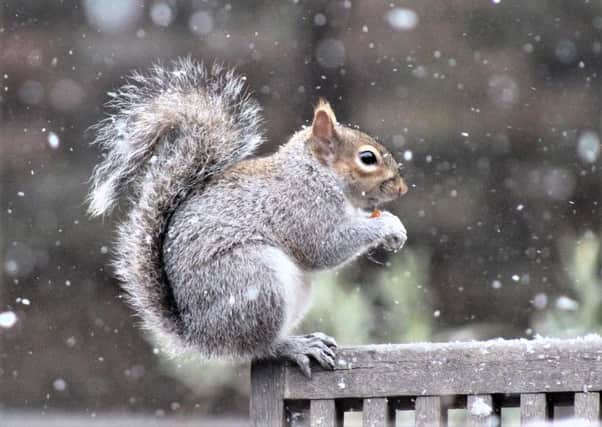Queen’s University academic: Invasive wildlife has cost UK £5bn


That is the picture painted by fresh research led by a Queen’s University Belfast academic, published on Thursday.
The research involved cataloguing the damage caused by invaders such as the grey squirrel alongside plants like Japanese knotweed.
Advertisement
Hide AdAdvertisement
Hide AdThe university issued a statement setting out the research, in which it said: “Environmental impacts of invasive species, one of the main causes of biodiversity loss, are well-studied. However, few studies have summarised their economic impacts.
“This study is the largest and most up-to-date combination of economic costs of biological invasions in the UK.”
The results of the study are appearing this week in the science journal NeoBiota.
The study was first authored by Dr Ross Cuthbert, a research associate from the School of Biological Sciences at Queen’s, who is also attached to the Helmholtz Ocean Research Centre in Kiel, Germany.
Advertisement
Hide AdAdvertisement
Hide AdIt also involved a team of researchers at Paris-Saclay University.
Dr Cuthbert said: “We have found the majority of costs were caused by direct damages, such as reductions in agricultural productivity and infrastructure repair costs, whereas very little was spent on the actual management of invasive species, and especially prevention of future invasions.
“Worryingly, we also found that invasion costs are increasing rapidly over time and are likely to continue rising in future as more invasive species arrive in the UK.”
Among the most economically harmful invasive species which were examined were:
Advertisement
Hide AdAdvertisement
Hide Ad• The European rabbit: it is largely native to Spain, but has spread far more widely, covering the British Isles and Australia.
It can “cause severe damage to agricultural areas by overgrazing” and “their burrowing can also impact the quality of pastures” – and it was up to the researchers to put a cost on that.
• Japanese knotweed: this “causes structural damage to property that is expensive to remediate and reduces house values substantially”.
• Invasive waterweeds: these can clog waterways, worsening flood risk and impeding boats and anglers.
Advertisement
Hide AdAdvertisement
Hide Ad• Grey squirrels: According to Britishredsquirrel.org, these can damage timber trees and orchards, quite apart from obliterating the native red squirrel.
Dr Cuthbert concluded: “Investing in better biosecurity to prevent invasive species from arriving in the first place could reduce future economic impacts and be much cheaper than future damages or long-term control.”
~ More from this reporter: ~
Click here:
Click here:
——— ———
A message from the Editor:
Advertisement
Hide AdAdvertisement
Hide AdThank you for reading this story on our website. While I have your attention, I also have an important request to make of you.
With the coronavirus lockdown having a major impact on many of our advertisers — and consequently the revenue we receive — we are more reliant than ever on you taking out a digital subscription.
Subscribe to newsletter.co.uk and enjoy unlimited access to the best Northern Ireland and UK news and information online and on our app. With a digital subscription, you can read more than 5 articles, see fewer ads, enjoy faster load times, and get access to exclusive newsletters and content. Visit https://www.newsletter.co.uk/subscriptions now to sign up.
Our journalism costs money and we rely on advertising, print and digital revenues to help to support them. By supporting us, we are able to support you in providing trusted, fact-checked content for this website.